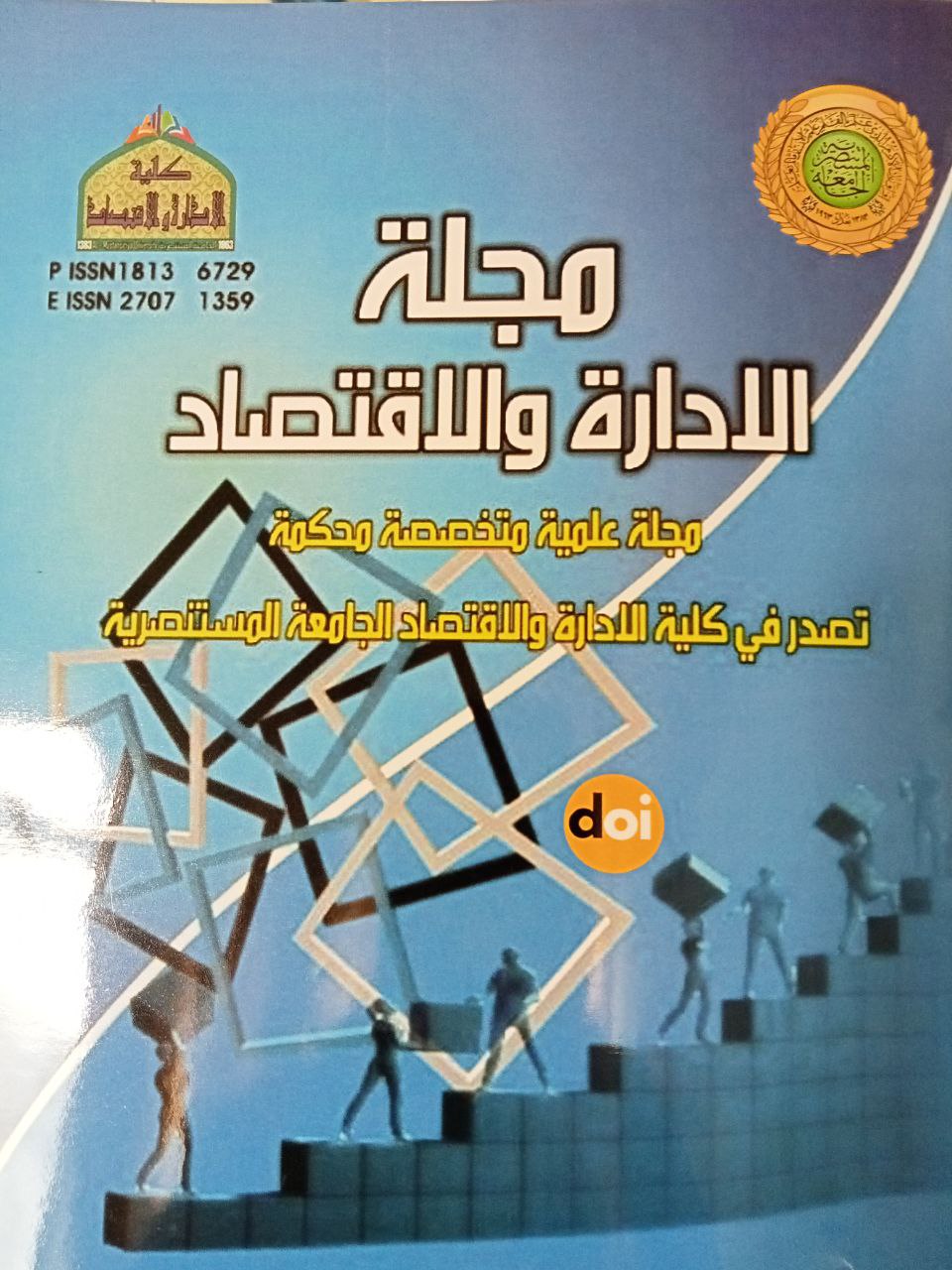Using Capital as a Factor Investment in Religious Tourism in Karbala Governorate
DOI:
https://doi.org/10.31272/jae.i144.1248Keywords:
Money capital, human capital, Social capital, Tourism development, Religious tourismAbstract
The research aims to analyse the impact of monetary, human and social capital to build a system that seeks to develop the capabilities of religious tourism while highlighting the obstacles and components of the development of spiritual tourism in Karbala Governorate so that it has an impact on similar holy cities in the country. The deductive approach was used to achieve this goal, which starts from theoretical foundations to reach their application in practical reality. This required relying on the descriptive analytical method based on theoretical aspects and valuable study. Data and statistics were collected for the period (2018-2022). A questionnaire was designed that included aspects specific to the field of research and was statically analysed using the SPSS statistical program to reach practical and realistic conclusions. The study found limited use of all types of capital to develop religious tourism in Karbala Governorate. Therefore, it requires developing development strategies based on the foundations of developing spiritual tourism in the country, especially the Holy Governorate of Karbala.
Downloads
References
]1 [البكري ، فؤادة (2001) ، الاعلام السياحي ، ط1، دار النشر للجامعات، القاهرة.
]2[ حسب الله، محمد أحمد (2007)، لسان العرب لأبن منظور، دار المعارف للنشر، بغداد .
]3 [جمهورية العراق، وزارة التخطيط، الجهاز المركزي للإحصاء، مديرية الحسابات القومية، المجموعة الإحصائية السنوية، سلسلة زمنية .
]4 [جمهورية العراق، وزارة الثقافة، دليل العراق السياحي، 2022 .
]5 [جمهورية العراق، وزارة المالية، الدائرة الاقتصادية، سلسلة بيانات غير منشورة.
]6[ السيسي، ماهر عبد الخالق (2016)، مبادئ السياحة، مجموعة النيل العربي، القاهرة .
]7 [الروبي ، نبيل (1986) ، نظرية السياحة ، مؤسسة الثقافة الجامعية ، الاسكندرية .
]8 [سيد لطيف (1999) ، السياحة النظرية والتطبيق ، ط1، الشركة العربية للنشر والتوزيع، القاهرة .
]9 [الشبار، جهاد عيسى (2017)، اقتصاديات السياحة والفنادق-(وتطبيقاتها في المملكة العربية السعودية)، ط1 ، دار جامعة الملك سعود للنشر، الرياض .
]10[ صالح ، أحمد علي (2010)، إدارة رأس المال البشري ، ط1، دار اليازوري للنشر، عمان .
]11 [كافي ، مصطفى يوسف (2014)، السياحة البيئية المستدامة – تحدياتها وافاقها المستقبلية، دار مؤسسة رسلان للطباعة والنشر والتوزيع، دمشق.
]12 [ماركس ، كارل (2002) ، رأس المال – عملية انتاج رأسمال، المجلد الأول، دار التقدم، موسكو.
[محمود، قاسم شاكر(2024)، القطاع السياحي في العراق الواقع والافاق المستقبلية، مجلة المستنصرية للدراسات العربية والدولية، العدد (8) .
]14[ مركز كربلاء للدراسات والبحوث، شعبة الدراسات التخصصية في زيارة الاربعين، النشرة الاحصائية السنوية – زيارة أربعينية الأمام الحسين .
]15 [منظمة السياحة العالمية، تقرير السياحة العالمية، عام 2022.
]16 [ناجحة، هادي مهدي (2022)، السياحة الدينية وآسس استدامتها في محافظة كربلاء المقدسة، مجلة اهل البيت ، المجلد الاول، العدد (31) .
Humnath, Bhandari (2009), what is social capital: A Comprehensive review of the concept, Asian Journal of Social Science, Vol.31.
Teresa, Torres Coronas(2005), Mario Arias-Oliva, e-Human Resources Managing Knowledge people, Idea group publishing, Hershey, London, Melbourne, Singapore.

Downloads
Published
Issue
Section
License
The journal of Administration & Economics is an open- access journal that all contents are free of charge. Articles of this journal are licensed under the terms of the Creative Commons Attribution International Public License CC-BY 4.0 (https://creativecommons.org/licenses/by/4.0/legalcode) that licensees are unrestrictly allowedto search, download, share, distribute, print, or link to the full text of the articles, crawl them for indexing and reproduce any medium of the articles provided that they give the author(s) proper credits (citation). The journal allows the author(s) to retain the copyright of their published article.
Creative Commons-Attribution (BY)









